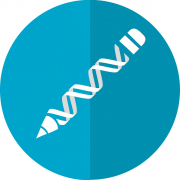D. Weigel giving plenary lecture at FESPB 2012
Detlef Weigel is delivering today, August 1, a plenary lecture entitled “Arabidopsis thaliana as a model system for the study of evolutionary questions”, at the joint EPSO-FESPB Plant Biology 2012 meeting in Freiburg.
This is what he will discuss:
We are investigating three main questions of evolution: (i) How, and how frequently, do new genetic variants arise? (ii) Why do some variants increase in frequency? (iii) And why are some combinations of variants incompatible with each other? To this end, we are employing bottom-up and top-down approaches that rely heavily on large-scale sequencing. Whole-genome sequencing supports a detailed description of the pan-genome of A. thaliana (http://1001genomes.org; Schneeberger et al., PNAS 108:10249 [2011]; Cao et al., Nat Genet 43:956 [2011]), it reveals mutational biases shaping the genome (Ossowski et al. Science 327:92 [2010]), and it allows for rapid mapping of genes with major phenotypic effects (Schneeberger et al., Nat Methods 6:550 [2009]). We have also investigated spontaneous epigenetic variation. Our results suggest that most epialleles are unlikely to contribute to long-term evolution (Becker et al., Nature 480:245).
A major interest in the lab is the analysis of fitness tradeoffs in immunity. Arabidopsis thaliana is an excellent model for hybrid necrosis, a widespread syndrome of hybrid failure in plants (Bomblies et al., PLoS Biol 5:e236 [2007]). Several causal loci encode highly polymorphic immune receptors. While most hybrid necrosis systems involve two loci, autoimmunity can also be caused by inter-allelic interactions at a single locus that is involved in a major fitness tradeoff between growth and pathogen resistance in inbred strains (Todesco et al., Nature 465:632 [2010]). Thus, divergence of pathogen recognition systems can potentially result in reproductive isolation and subsequent speciation.



